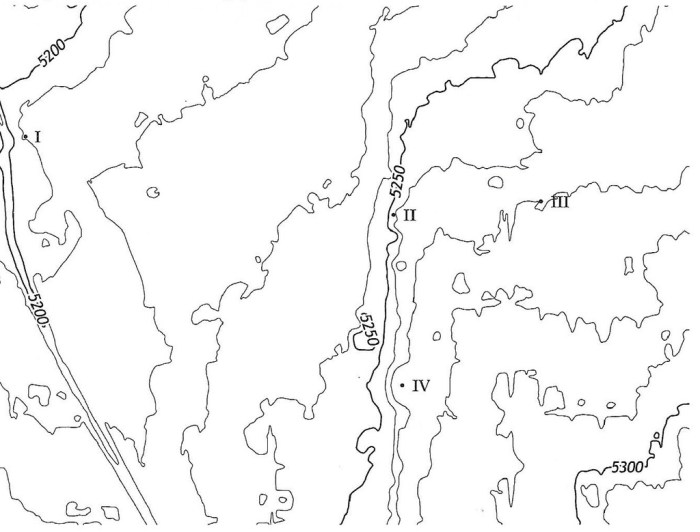Embark on a captivating journey as we delve into the intricacies of the Abeka 8th Grade Science Test 10. This comprehensive guide will equip you with the knowledge and strategies you need to conquer this academic challenge and emerge victorious.
Within these pages, you will discover the test’s purpose and structure, explore effective study methods, master test-taking techniques, and practice with a variety of sample questions. Let us guide you on this path to scientific mastery.
Overview of Abeka 8th Grade Science Test 10

The Abeka 8th Grade Science Test 10 is a comprehensive assessment designed to evaluate students’ understanding of the fundamental concepts and principles of science. This standardized test plays a crucial role in assessing students’ progress and identifying areas where they may need additional support.
The test consists of multiple-choice questions that cover a wide range of science topics, including physical science, life science, and earth science. Students are expected to demonstrate their knowledge of scientific methods, scientific inquiry, and the application of scientific principles to real-world situations.
Format and Structure
The Abeka 8th Grade Science Test 10 is a multiple-choice test with a total of 50 questions. Each question is worth one point, resulting in a maximum possible score of 50 points. The test is divided into two sections:
- Section 1: Physical Science(25 questions)
- Section 2: Life Science and Earth Science(25 questions)
Topics Covered
The test covers a wide range of science topics, including:
- Physical Science:Matter, energy, forces, motion, waves, and electricity
- Life Science:Cells, genetics, evolution, ecosystems, and human biology
- Earth Science:Earth’s systems, geology, weather, climate, and astronomy
Test Preparation Strategies

To excel in the Abeka 8th Grade Science Test 10, effective study methods are crucial. A well-structured study plan that incorporates time management techniques can help you optimize your preparation.
Effective Study Methods
-
-*Active Reading
Engage with the textbook by highlighting, annotating, and summarizing key concepts.
-*Spaced Repetition
After studying for the Abeka 8th Grade Science Test 10, I decided to take a break and explore other topics. I came across a Venn diagram comparing Athens and Sparta , which reminded me of the different civilizations we studied in class.
This diagram helped me visualize the similarities and differences between these two ancient Greek city-states, making it easier to recall the information I had learned for the Abeka test.
Review material at increasing intervals to strengthen memory retention.
-*Concept Mapping
Create visual representations of concepts to enhance understanding and connections.
-*Practice Questions
Solve practice problems to test your comprehension and identify areas for improvement.
Study Plan
-
-*Establish a Schedule
Dedicate specific time slots each day to studying science.
-*Prioritize Concepts
Focus on understanding core concepts first, then move on to more complex topics.
-*Break Down Material
Divide large sections into smaller chunks to make studying less daunting.
-*Take Breaks
Regular breaks will help you stay focused and avoid burnout.
Review and Practice
-
-*Regular Review
Review notes and textbooks periodically to reinforce understanding.
-*Practice Problems
Dedicate time to solving practice problems and reviewing solutions.
-*Study Groups
Collaborate with classmates to discuss concepts, clarify doubts, and share perspectives.
-*Seek Help When Needed
Don’t hesitate to ask your teacher or a tutor for assistance with challenging concepts.
Test-Taking Techniques

Approaching a standardized test like the Abeka 8th Grade Science Test 10 requires more than just memorizing facts. Effective test-taking strategies can help you maximize your score and minimize anxiety.
Approaching Different Question Types, Abeka 8th grade science test 10
The Abeka 8th Grade Science Test 10 includes a variety of question types, each requiring a specific approach:
- Multiple Choice:Eliminate incorrect options by carefully reading the question and answer choices. Choose the answer that best fits the question.
- True/False:Determine if the statement is true or false based on your knowledge of the material. If unsure, make an educated guess.
- Short Answer:Provide concise, specific answers that demonstrate your understanding of the concept being tested.
li> Extended Response:Write well-organized, detailed answers that support your claims with evidence from the text or your own knowledge.
Time Management
Time management is crucial during the test. Allocate time wisely for each question type based on its difficulty and point value.
- Prioritize Questions:Start with questions you are confident in and return to more challenging ones later.
- Skip and Return:If you encounter a difficult question, skip it and come back to it later to avoid wasting time.
- Guess Intelligently:If you are unsure of an answer, make an educated guess based on the context or your knowledge.
Reducing Test Anxiety
Test anxiety can interfere with your performance. Here are some tips to manage it:
- Prepare Thoroughly:Study the material well to boost your confidence.
- Practice Relaxation Techniques:Engage in deep breathing exercises or meditation before the test.
- Stay Positive:Focus on your strengths and believe in your ability to succeed.
- Take Breaks:If time permits, step outside for a short break to clear your mind and refresh.
Staying Focused
Maintaining focus throughout the test is essential. Here’s how to stay on track:
- Eliminate Distractions:Sit in a quiet area, away from distractions like phones or noise.
- Break Down Questions:Read questions carefully and break them down into smaller parts to improve comprehension.
- Take Notes:Write down key concepts or formulas to help you stay focused and recall information.
- Review Your Work:Before submitting your test, take a few minutes to review your answers and correct any mistakes.
Sample Questions and Practice Exercises

Practice is crucial for success on the Abeka 8th Grade Science Test 10. This section provides a variety of sample questions and practice exercises that reflect the content and format of the test. By engaging with these materials, students can strengthen their knowledge and skills, increasing their confidence and preparedness on test day.
The sample questions cover a wide range of topics and question types, ensuring comprehensive preparation. Practice exercises allow students to apply their knowledge and skills in a simulated testing environment, helping them identify areas for improvement and develop effective test-taking strategies.
Sample Questions
The following sample questions provide a glimpse into the types of questions students can expect on the Abeka 8th Grade Science Test 10:
- What is the difference between a conductor and an insulator?
- Describe the process of photosynthesis.
- What are the three main types of rocks?
- How does the circulatory system work?
- What are the factors that affect the rate of a chemical reaction?
Practice Exercises
These practice exercises allow students to apply their knowledge and skills in a simulated testing environment:
- Multiple Choice:Answer the following multiple-choice questions related to the topic of electricity.
- Short Answer:Briefly explain the concept of energy conservation.
- Lab Report:Analyze the results of a lab experiment on the effects of different liquids on plant growth.
- Problem-Solving:Solve a word problem involving the principles of motion.
- Essay:Write a short essay discussing the importance of biodiversity in an ecosystem.
Sample Questions by Topic or Question Type
The following table organizes the sample questions by topic or question type, providing a structured overview of the test content:
| Topic | Question Type | Sample Question |
|---|---|---|
| Electricity | Multiple Choice | Which of the following materials is a good conductor of electricity? |
| Energy | Short Answer | Explain the first law of thermodynamics. |
| Plants | Lab Report | Analyze the results of a lab experiment on the effects of different liquids on plant growth. |
| Motion | Problem-Solving | A car travels 100 miles in 2 hours. What is the average speed of the car? |
| Ecology | Essay | Discuss the importance of biodiversity in an ecosystem. |
Additional Resources and Support
In addition to the materials and strategies discussed earlier, various resources are available to enhance your preparation for the Abeka 8th Grade Science Test 10.
Textbooks and Study Guides
Consider using supplementary textbooks or study guides specifically designed for the Abeka 8th Grade Science curriculum. These resources provide comprehensive coverage of the topics tested and can offer additional practice exercises and explanations.
Online Resources
Numerous online resources can aid in your preparation. Educational websites and platforms offer interactive simulations, practice tests, and video lessons that can reinforce your understanding of the concepts.
Support Services
If you require additional support, consider seeking tutoring services. Tutors can provide personalized guidance, address specific areas of difficulty, and help you develop effective study habits. Online forums and discussion boards can also connect you with other students and educators who can provide assistance and share insights.
FAQ Compilation: Abeka 8th Grade Science Test 10
What is the purpose of the Abeka 8th Grade Science Test 10?
This test assesses students’ understanding of key scientific concepts and their ability to apply them in real-world scenarios.
How should I prepare for the test?
Develop a study plan, utilize practice questions, and seek support from teachers or tutors if needed.
What are some effective test-taking strategies?
Manage your time wisely, read instructions carefully, and eliminate incorrect answer choices before selecting your final response.